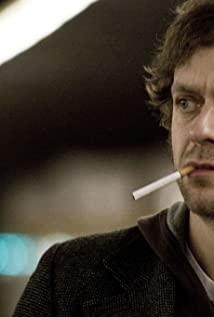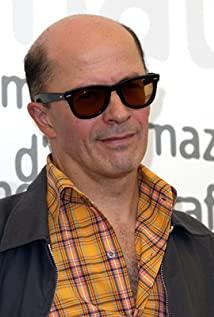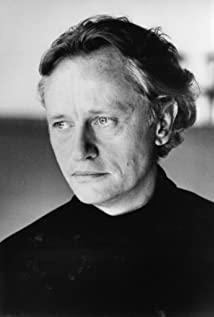midst of chaos In 1991, the former Soviet Union was facing great changes and the situation was turbulent. On the afternoon of August 19, Yeltsin and his allies from all walks of life boarded the parliament building surrounded by tanks and delivered speeches one after another on the balcony. They made generous statements and encouraged tens of thousands of supporters gathered in the square. When Rostropovich, a cellist who has been in exile for nearly 20 years, appeared in front of the people, the hustle and bustle immediately quieted down, looking forward to this wonderful speech for the great musician. Rostropovich just slowly raised his arms and simply said "I love you", and the crowd immediately cheered. The cheering is not for any political purpose or any other personal reason at this moment, the cellist is overwhelmed with a flood of cheers with a deep love for music, and he becomes a light in this voice , an invisible power of purification.
Music greatly enhances the spiritual influence on people. Australian pianist David Huffgot, plunged into another world of madness for Rachmaninoff's third piano concerto. half life. When Liszt commented on Beethoven, he once said, "In the field of beauty, only genius is the authority, and there is no duality." David is the kind of person who can only crawl under the feet of genius, and cannot touch the ultimate beauty. However, the movie "Shine", based on David's story, still moved countless audiences. He has also come to China to perform, and people are rushing to appreciate him, which is not a great performance. David Huffgott gave music a meaning beyond its artistic attainments, namely how it destroys a soul before giving it soulful redemption. His life is just like what Camus said, "Without despair of life, there will be no love for life", just change the life in the sentence into music, because he dedicates his life to music, and let the emotions follow The musical notation changes and fluctuates in pitch, this is his sunrise and sunset. When he returned to normal and could perform on stage again, what people saw was not a more exquisite piano skills, but a heart beating for music.
Italian violinist Giuseppe Tardini was a stubborn, bohemian life. At the same time, he was also very talented. At the age of seventeen, he was already the best violinist in Italy. Such temperament will bring him disaster sooner or later, and sure enough, when Tartini was eighteen years old, he was wanted for secret marriage with the cardinal's niece and took refuge in the Assisi monastery. During these five years of isolation, he cultivated himself, devoted himself to the study of composition and vocal music, and wrote the violin sonata "Devil's Trill" which shocked the world in 1714. According to the story, Tartini dreamed of a strange old man that night, stooping in the dark and offering a flattering smile, telling him that he was willing to meet all Tartini's requirements. Tardini confidently handed him his violin, to try out what kind of wonderful music this boastful man can play. As a result, Tartini heard the unique music in the world. Every trembling of the strings outlines a fairyland on earth and the beauty of hell. Because Tartini tried to remember this ingenious music, he suddenly woke up and escaped the devil. 's claws. Although he has been complaining that he can't reproduce the wonderful music, the "Devil's Trill" is still gripping. The whimper of the violin is like water droplets penetrating glass, making people's ears wander in heaven, but the heart is unbearably squeezed in this joy. almost reduced to ashes. Since then, Tartini seems to have changed a person. People say that he is like being tamed by music, his soul has been washed by notes, and he has devoted his whole body and mind to music creation and research.
Tom Searle in "The Rhythm of My Heart Forgotten" is a young man caught in a violent life. His daily job is to collect rent for his father everywhere, waving his fists and licking the blood stains on his lips. In fact, he couldn't even keep an idle house in his father's property, and watched helplessly as the house was occupied by homeless people. A chance encounter with a music manager revived his passion for playing the piano and gave him a new option in his closed life. Tom has no type prejudice or bombastic opinions on music, he is simply indulging in the world of music, looking for his lost self.
In this hustle and bustle world, music guides a path for people who are lost. As long as they devote themselves to it, they will always find their inner home.
*Lost youth
Janus is a two-faced god in Roman mythology, who can look forward and backward, see the past and the future. However, many times, people are not simply two-sided, that is, good and evil, and more often they will make very different choices in the face of different environments.
Although Tom has entered the society, but in his heart, he has not yet stepped out of the confused youth. Even if he does not adapt to the status quo, he does not know how to change his life, and he has no goal of moving forward. The director let him immerse himself in the psychedelic music on the dance floor again and again to show his youthfulness and confusion. He beat the tabletop on the bar in the hilarious crowd, and he was a little addicted to it. He didn't realize that he could get happiness by playing the piano. . Sometimes he couldn't even tell whether he missed his mother who taught him how to play the piano, or whether he was simply excited by hitting the simple black and white keys.
Tom is not like the usual youthful characters in Hollywood movies, with split personalities or living in conflict, he is just groping for the future he wants to see in an uncertain life. His violent personality will show up from time to time even when he is playing the piano. He will often become irritable and violent because of a single mistake. When he encounters difficulties, he will give up on himself and yell at the music teacher who encourages him. He is inevitably impetuous at his age and eager to achieve success. When he sees the piano master Horowitz's playing technique on TV, he will pretend to imitate his posture, not thinking about whether it is suitable for him. His childish and competitive side was also revealed in his dealings with the piano teacher Maureen. In his spare time he would teach Maureen French in order to balance his mind and dignity. When he was denied by Maureen, he would They were all indignant, either resisting or letting Maureen play directly with a sullen mouth, as if she didn't believe she would play better.
Like many people, Tom has a peculiar fear of the world, which he does by shutting himself off. The director plays this in a clever way: whenever Tom is thinking and feeling lost, he puts on his headphones. The audience can only vaguely hear the deafening electronic music in Tom's ears and the heart that he never talks to. In this way, he isolated himself from the world and opened a gap between himself and his father.
For a child like him who lost his mother since childhood, the relationship with his father is also a symptom of growing up difficult. From the very beginning, the film tells everyone through chattering friends that one day we will find that we have reversed positions with our father. It is no longer that we are waiting to be fed and need to be taken care of, but that he is gradually becoming dementia, bedridden, and needs someone to comfort and listen to. , longing for warmth. Many of the conflicts between Tom and his father were the result of their lack of communication. For example, the father brought in a woman who said he wanted to marry her as a wife for his son to accept without saying hello, and Tom insulted the woman on the spot without giving any face; Asked to insist on letting him collect debts and inherit his family business. Tom's resistance was to throw things, and the two broke up every time. He cared about his father but didn't know how to express it. In the end, his father died in a revenge operation by a wealthy Russian businessman, and he lost the chance to recover.
This is youth, transformation and growth all require a price, but none of us know how much this price is, whether it is a sudden enlightenment after a nightmare or a heart-wrenching bone-chilling after the loss of a loved one.
Due to the untimely death of Tom's mother, the love of women has always been absent in his life. His mother was the best part of his emotional recollection, so he would develop a phantasmagorically hidden fascination with women, just as he had for Alain, the wife of his best friend Farpuis, with a repressed emotion. Down Sweet Madness. But this kind of relationship is only the satisfaction of desire after all, for someone like him who is emotionally thirsty, he can only drink poison to quench his thirst. Maolin, a piano teacher from China, is to a large extent full of the image of a woman. She is both a good teacher and a good friend. She and Tom gain equality and respect in the mutual disputes. Although the language is different, music has become a red thread connecting their emotions. .
After the audition failed, Tom walked out of the dim concert hall, facing the rushing sunlight, put on his headphones again, and said goodbye to youth. Although in the end he couldn't sit under the lights of the concert hall and play for the audience, he knew where to look for the sound.
Two years later, Tom met the murderer who killed his father again. He knocked him to the ground but didn't start. He already had love and music, so he no longer needed to get lost in anger and hatred. When he was sitting in the auditorium of the concert hall with his face red and swollen, his eyes were shining like bright lights, burning with endless light, and he looked towards the future with longing.
* Unforgettable rhythms
As for how to play well, Karl-Philippe Emmanuel Bach said, "If a musician wants to move others, he must first be deeply moved. He has this emotion himself, and can arouse the emotion of the audience. Because only by expressing one's own emotions can the audience's emotions be stimulated."
Tom continuously integrated his youthful experience and self-awareness into the music, and finally performed an unforgettable colorful movement. Although it is not perfect and often makes mistakes, but Passionate and heartwarming.
Director Jacques Audiard (Jacques Audiard), following 2001's "Read My Lips" (Read My Lips), has dedicated another masterpiece to the French cinema, which won eight César Awards in 2006. The director has lived in the film industry since he was a child. His father is a famous screenwriter and director, and his uncle is also a famous producer. He always smiles and recalls that his childhood was spent in various celebrity gatherings. He can always see those big stars. However, it was not until he grew up that he had the idea of making a movie. After completing several relatively successful works, Jacques Audiard found that "the script was written perfectly, but it seemed heavy when shooting. The work of the plot", so there is "the rhythm that my heart forgets". The reason for a remake of an obscure American work in the 1970s is entirely because it belongs to the director's childhood memories, and you can be happy for a long time watching those old-fashioned gangster movies in the cinema.
Although the actor Romain Doulis was already thirty years old when he played the role of Tom, according to the director's words, he was in a period of change and could perfectly interpret this confused young man. In fact, he also used actual performance to strike the brightest note on the score.
The music of the film is also the essence of the film's rhythm. The French and Greek soundtrack master Alexandre Desplat has a good fusion of Mozart, Debussy, Bach's classical music and modern electronic pop music. Shaped Tom Searle's dynamic youth.
Please indicate the author when reprinting: Nine-tailed black cat
http://www.mtime.com/my/LadyInSatin/blog/531225/
View more about The Beat That My Heart Skipped reviews











